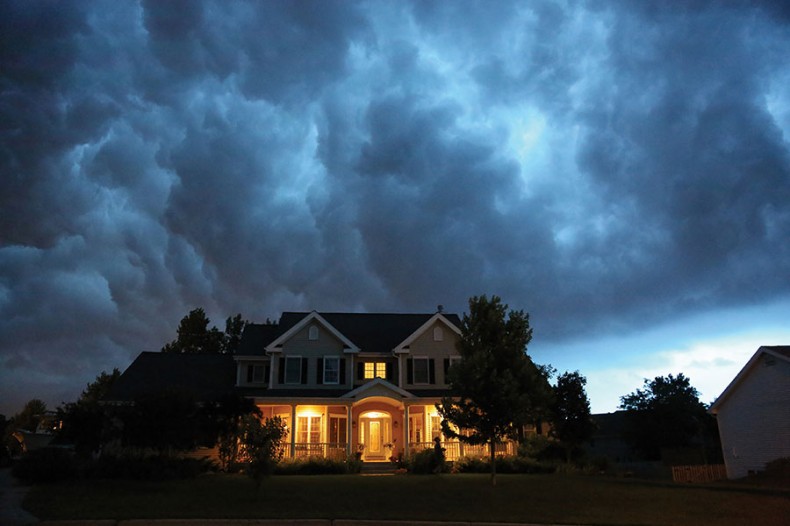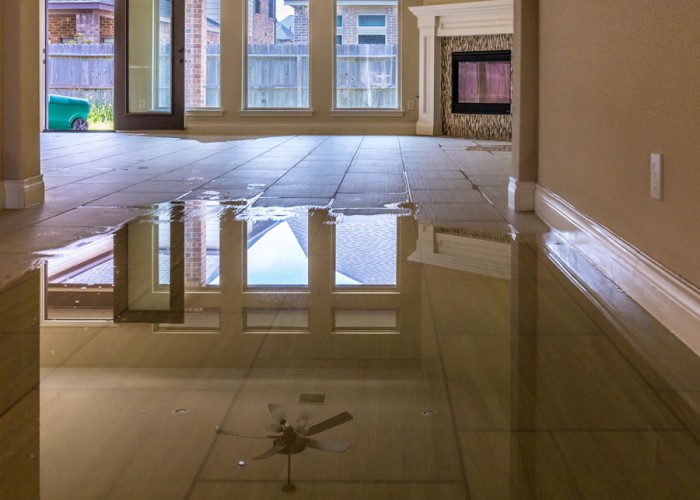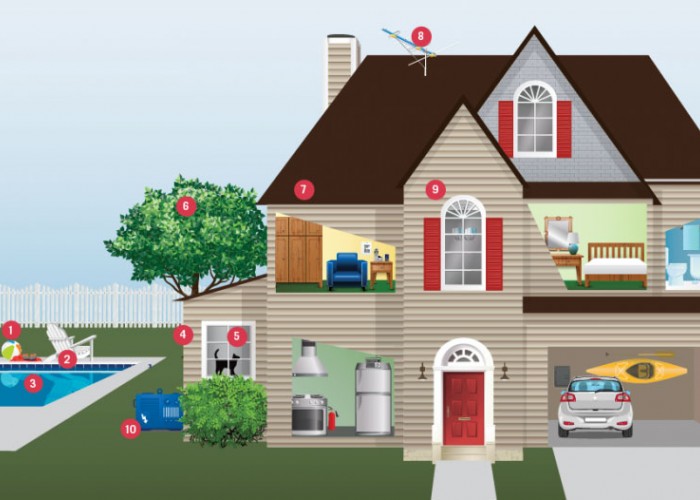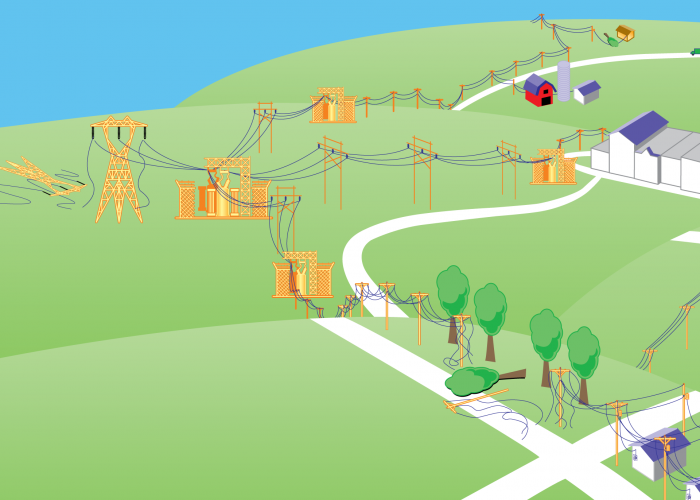Reduce Your Risk
Advice to make your home storm-ready
By FamilyFeatures.com
Photo by Getty Images
Thunderstorms in North Carolina occur year-round, but most are likely to occur in the summer months. North Carolinians get about 40–50 thunderstorms each year, according to the North Carolina Climate Office. These storms, which can be accompanied by high winds, hail and even tornadoes, can cause power outages, fires and flooding, all of which pose serious threats to North Carolinians and their property.
When these storms hit, features that make your home comfortable and enjoyable can also pose serious risks. Learn how to prevent damage and protect your family’s safety from these common hazards.
Landscaping. Lush, well-developed trees provide valuable curb appeal, but they can also be dangerous in storm conditions. Although it’s virtually impossible to fully prevent damage from falling branches or even entire trees, you can minimize the risk. Prune trees regularly to maintain a safe distance from the house and power lines, and eliminate dead trees or damaged branches.
Decorative features, furniture. Strong winds can turn everyday items in your yard into airborne hazards. If items like bird feeders, hanging pots and patio furniture aren’t secured, bring them in or safely secure them before the storm hits.
Doors and windows. Poorly fitted doors and windows are vulnerable in a storm. They can invite leaks, or worse, blow in completely when weakened by blustery force. It’s a good idea to give all openings to your home a careful review at least twice a year and again after any major storm.
Propane tanks. Floods and strong winds can cause falling tree limbs or other debris that can impair or destroy a propane tank. More important than the property damage are the potential safety risks, such as gas leaks. In addition to trimming back landscaping that could fall onto a tank, also have a service technician survey your tank for possible risk factors, such as rust, loose fittings or faulty valves.
After the storm passes and it is safe to do so, check the entire area for damaged gas lines or damage to your propane tank. If it is dark, use flashlights, not candles. Immediately call your local gas company or propane retailer if any of these hazards exist. Do not attempt repairs yourself. For additional information and videos about the proper use of propane gas, visit propane.com/safety.
Stay safe around propane!
Never use outdoor propane appliances like portable heaters, barbecue grills or generators indoors or in enclosed areas, particularly during a power outage. This can result in carbon monoxide poisoning or potentially death. Never store, place or use a propane cylinder indoors or in enclosed areas such as a basement, garage, shed or tent.
-
Storm safety
-
Share this story:





